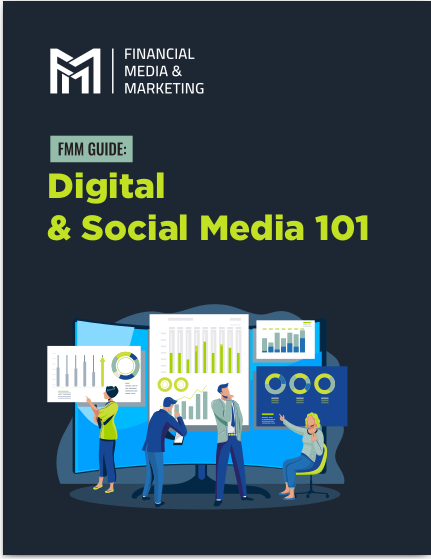Key Takeaways
-
Most financial advisors miss out on potential leads by using outdated or ineffective SEO strategies. Optimizing for the right keywords and search intent can significantly boost your online visibility.
-
A strong SEO strategy involves content marketing, local SEO, and technical optimization. Ignoring any of these can limit your ability to attract high-value clients.
Why Your SEO Strategy Isn’t Bringing in the Leads You Need
If your website isn’t generating leads, your SEO strategy is likely to blame. Many financial advisors assume that having a website is enough, but without proper optimization, your online presence is practically invisible. SEO isn’t just about ranking high on Google—it’s about getting in front of the right audience with the right message. And more importantly, it’s about converting that traffic into paying clients.
The Wrong Keywords Could Be Hurting Your Business
Not all keywords are created equal. Many financial advisors focus on broad, high-competition keywords that are nearly impossible to rank for. Instead, your SEO strategy should target intent-driven keywords—phrases that prospective clients actually search for when looking for financial advice.
Additionally, keyword intent matters. Some searchers are just looking for general information, while others are actively searching for a financial advisor. If you target the wrong intent, you’ll get traffic that never converts into leads. Without careful keyword research, you might be attracting visitors who aren’t actually in need of your services, leading to wasted effort and minimal results.
How to Fix It
-
Use long-tail keywords that indicate intent, such as “best retirement plans for high-income earners in 2025.”
-
Optimize for local search terms by including your city or region in keyword phrases.
-
Prioritize question-based keywords that address common client concerns, such as “How do I reduce my taxable income in retirement?”
-
Identify transactional keywords that indicate someone is ready to hire an advisor, such as “top-rated financial advisor near me.”
-
Regularly update your keyword strategy to reflect changes in search trends and user behavior.
Your Content Might Be Too Generic
Search engines favor websites that provide valuable, unique content. If your website simply repeats the same generic financial advice that’s found everywhere else, it won’t stand out—and it won’t rank well either. Clients are searching for specific answers, and if your content doesn’t go beyond surface-level insights, they’ll go elsewhere.
Generic content also fails to engage users, resulting in high bounce rates and low engagement metrics. Google’s algorithm takes user behavior into account when ranking websites, so if visitors quickly leave your site because they don’t find it helpful, your rankings will suffer.
How to Fix It
-
Create in-depth guides and resources that answer complex financial questions.
-
Keep your content up to date with new tax laws, investment trends, and financial regulations.
-
Use a mix of blog posts, videos, and infographics to engage different types of users.
-
Incorporate case studies and hypothetical scenarios to illustrate financial strategies in action.
-
Regularly update and repurpose old content to keep it relevant.
-
Encourage user interaction by adding FAQs, comments sections, and engaging CTAs.
Local SEO is a Game-Changer (But Most Advisors Ignore It)
Financial advising is often a local business, yet many advisors fail to optimize their websites for local search. If your business doesn’t appear in Google’s local pack (the map listings at the top of search results), you’re missing out on a huge number of potential clients.
Google prioritizes businesses that show strong local relevance. If your firm isn’t optimized for local search, you’ll struggle to compete with firms that are, even if you have better expertise. Many potential clients prefer to work with a local financial advisor they can meet in person rather than relying on virtual consultations.
How to Fix It
-
Claim and optimize your Google Business Profile with accurate contact information, services, and regular updates.
-
Get local backlinks from reputable businesses, industry associations, and financial news websites.
-
Encourage satisfied clients to leave reviews on Google to build trust and improve rankings.
-
Add local content to your website, such as blog posts addressing state-specific financial regulations.
-
Ensure your business name, address, and phone number (NAP) are consistent across all online directories.
Technical SEO Issues Could Be Blocking Your Growth
Even the best content won’t rank well if your website has technical SEO issues. Slow loading speeds, broken links, and poor mobile optimization can prevent search engines from ranking your site and frustrate potential clients.
Google has become increasingly strict about technical performance. A website that loads slowly or has broken pages will lose rankings—even if the content is great. Search engines favor sites that provide a seamless user experience across all devices.
How to Fix It
-
Ensure your website loads in three seconds or less by optimizing images and using a fast hosting provider.
-
Implement SSL encryption to improve security and gain trust from search engines.
-
Use a mobile-responsive design so your site functions smoothly on smartphones and tablets.
-
Fix broken links and clean up your URL structure for better navigation.
-
Enable structured data markup so Google understands your site content better.
-
Use caching techniques and minify CSS/JavaScript files to improve site speed.
Building Authority Through High-Quality Backlinks
Search engines rank websites based on authority, and one of the best ways to establish authority is through high-quality backlinks. However, not all backlinks are beneficial—low-quality links can actually harm your rankings. Google values quality over quantity when it comes to backlinks.
Backlinks serve as endorsements from other websites, signaling to search engines that your content is valuable and trustworthy. Without strong backlinks, your site may struggle to compete against more established financial advisory firms.
How to Fix It
-
Contribute guest posts to financial news websites and industry blogs.
-
Get featured in online interviews or podcasts where your expertise is highlighted.
-
Avoid spammy link-building tactics—focus on genuine relationships with reputable sources.
-
Publish original research or data-driven reports that naturally attract backlinks.
-
Build relationships with industry influencers who can link back to your content.
Why SEO is an Ongoing Process, Not a One-Time Fix
SEO isn’t something you set up once and forget about. Search algorithms are constantly evolving, and competitors are always optimizing their own websites. If you’re not consistently improving your SEO strategy, your rankings will decline over time.
Additionally, search engines favor websites that regularly produce fresh content. If your site remains stagnant, it’s a signal to Google that your business isn’t active or relevant. SEO requires continuous refinement and adaptation to remain competitive.
How to Stay Ahead
-
Conduct regular SEO audits to identify and fix weaknesses.
-
Update your content strategy to reflect new trends, search behaviors, and client needs.
-
Monitor competitor strategies to see where you can gain an edge.
-
Use Google Search Console to track your rankings and fix any crawl issues.
-
Invest in local PR campaigns to build your online presence and earn authoritative backlinks.
Bringing It All Together: Your SEO Roadmap for More Leads
Most financial advisors aren’t maximizing their SEO potential—but now you have the knowledge to change that. By focusing on high-intent keywords, producing unique content, optimizing for local search, fixing technical issues, and building quality backlinks, you can dramatically improve your website’s visibility. The key is consistency—implement these strategies and monitor your progress regularly.
SEO is a long-term investment, but the results are worth it. The sooner you optimize, the sooner you’ll start attracting more qualified leads and turning website visitors into lifelong clients.










